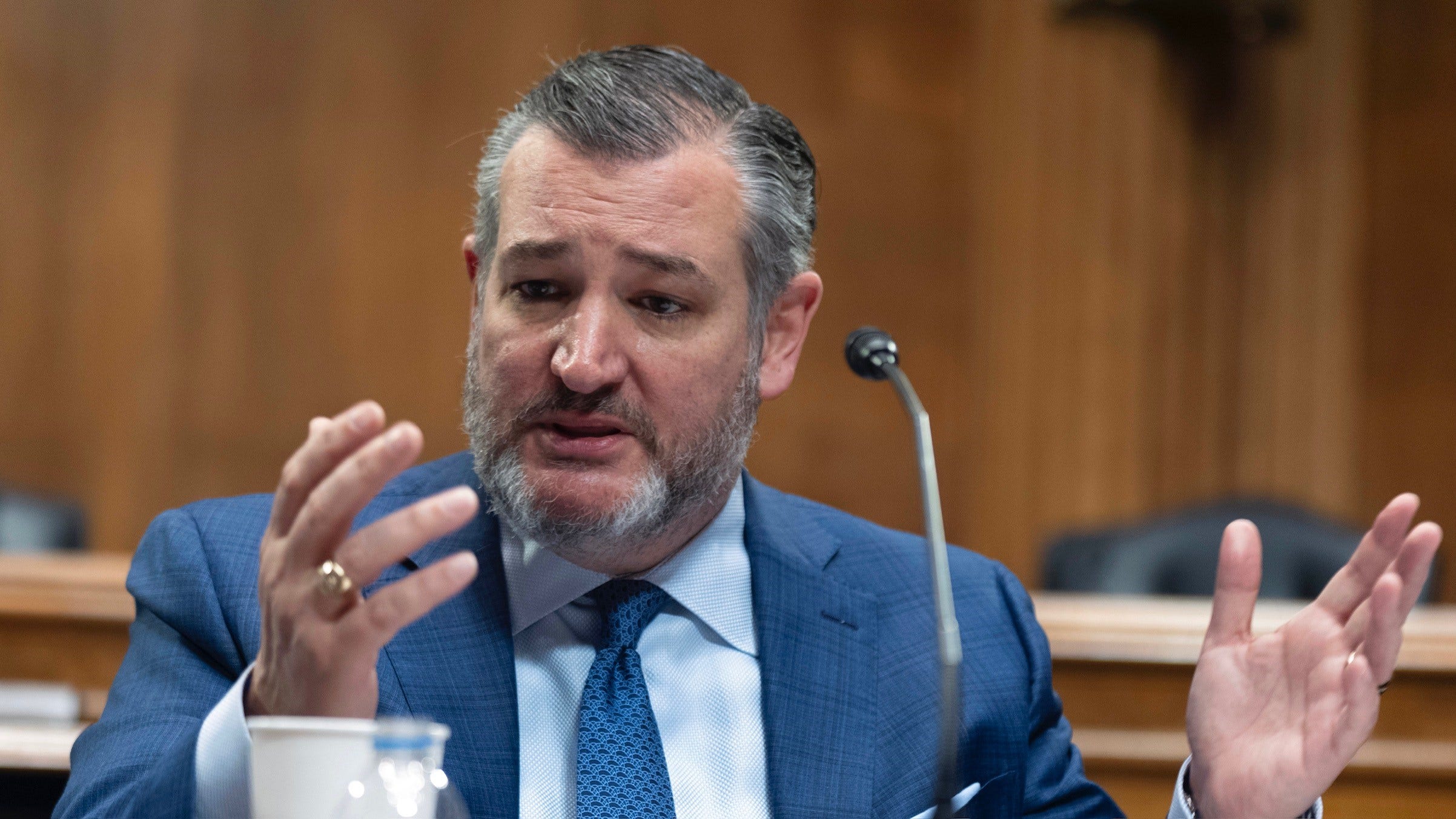World
Gaza’s food is running out amid Israel’s ‘war of starvation’
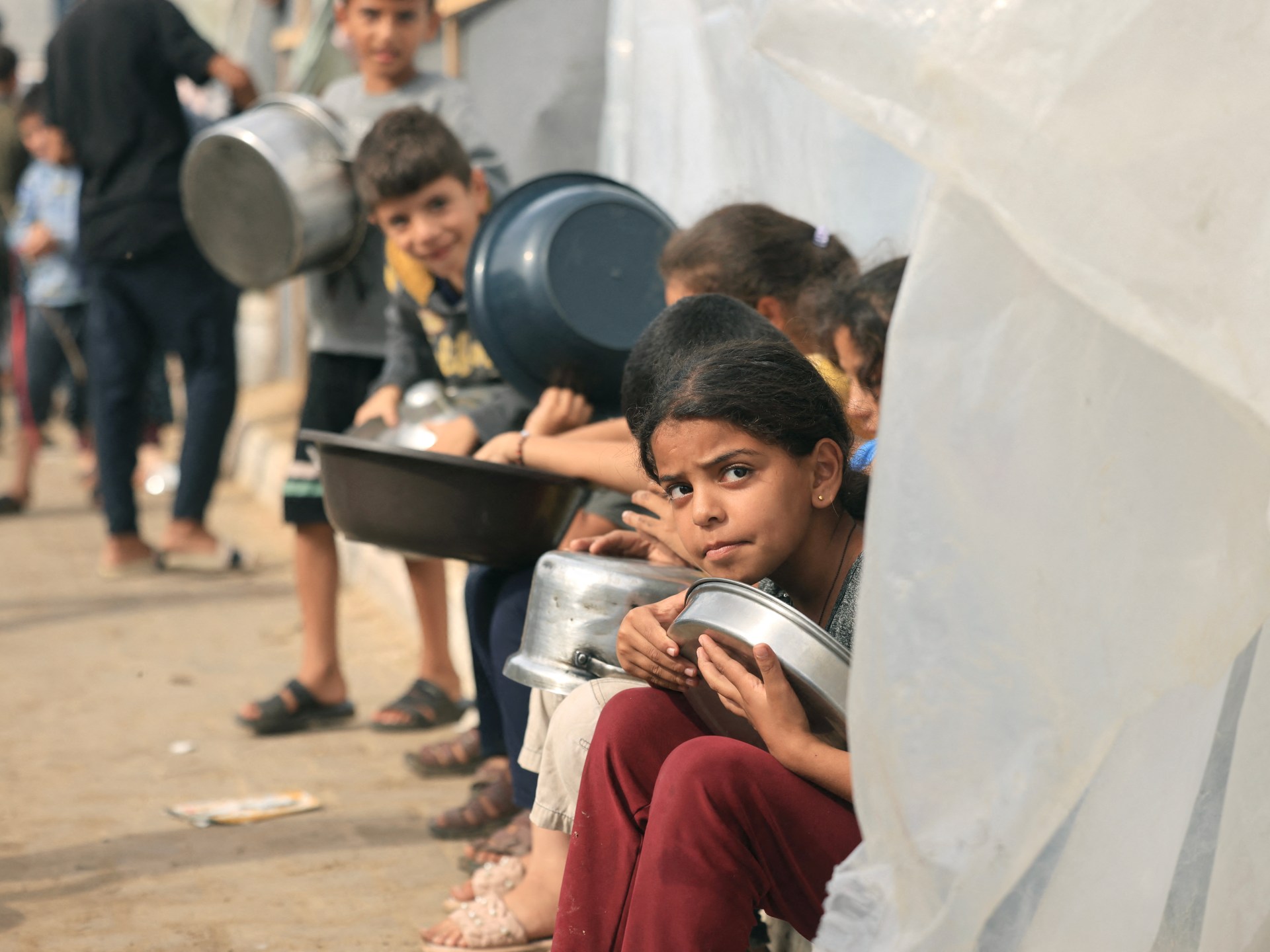
Khan Younis, Gaza Strip – Samar Rabie is wondering how she is going to feed the 15 people living with her. The mother of four has been hosting her husband’s friends and their families, who were displaced from Gaza City, in her home in Khan Younis, and is struggling to find basic items like bread.
“I went to one of the malls to buy some things, but I did not find anything,” the 28-year-old says.
The shelves are empty, with no sugar, legumes, cheese or any other kind of dairy products.
“There is only cooking oil,” Rabie says, pointing out that the price of food has tripled since the war began. “We are being deprived of many staple foodstuffs, as if everything was arranged so that in addition to not having electricity or water, we would be starved.”
Due to the lack of bread, the family and friends have relied on cooking pasta and rice, but supplies of those are drying up rapidly as well.
“I’m just worried about how we will feed each other after two or three days, and what we will live on in these difficult days that are increasingly suffocating us,” Rabie says.
‘Their farms have been destroyed’
Mahmoud Sharab, also a resident of Khan Younis, says that although he is dismayed by the increasing prices, he doesn’t blame grocers for the inflation when it comes to vegetables.
“Their farms have been destroyed by the constant Israeli bombing,” the 35-year-old says. “They cannot reach their lands.”
Sharab goes out every day to scour the shops and markets for food, hoping at the very least to find canned food and grains.
“I can’t find anything,” he says. “I’ve had to ask people if they have extra canned beans or meat so that I can buy them for my family.
“What Israel is doing is a war of starvation for citizens, and this policy is frightening a lot of people including children as well,” he said, adding that the deliberate bombing of bakeries has left people queuing for six or seven hours just to obtain a bag of bread.
According to the United Nations, no bakery in the northern Gaza Strip has been active since November 7 due to the lack of fuel, water and wheat flour and because of structural damage. A total of 11 bakeries in the Gaza Strip have been completely destroyed, while others are unable to operate because of the lack of flour, fuel and electricity.
“There are indications of negative coping mechanisms due to food scarcity, including skipping or reducing meals and using unsafe and unhealthy methods for making fire,” a report by the United Nations Office for the Coordination of Humanitarian Affairs (OCHA) said on Wednesday.
“People are reportedly resorting to unconventional eating, such as consuming combinations of raw onion and uncooked eggplant.”
Since Israel imposed a total siege on the Gaza Strip on October 7, aid convoys have barely trickled through, meaning they can provide just a “drop in the ocean” of what the 2.3 million people in the territory need, say humanitarian agencies.
Ninety-one trucks carrying aid entered from Egypt on November 14, bringing the total number of trucks entering Gaza since October 21 to just 1,187. Before the war began, an average of 500 trucks would enter the Gaza Strip each day.
Despite a limited amount of fuel being allowed in on Wednesday for the first time since October 7, Israeli authorities said it would be used exclusively for trucks distributing incoming humanitarian aid to shelters, clinics and other beneficiaries.
Any other use, such as for the operation of generators at hospitals or water and sanitation facilities, is banned.
Furthermore, it has become impossible to deliver aid to the north at all, as access has been largely cut off.
Limited food supplies are distributed primarily to displaced people and host families in the southern Gaza Strip, with only flour provided for bakeries in the southern Strip, while any transportation of food to Gaza City and north of it is not allowed by Israel.
According to the advocacy group Euro-Mediterranean Human Rights Monitor, Israel has sharply escalated a “war of starvation” against civilians in the Gaza Strip as a tool of subjugation as part of its ongoing war.
Before the Israeli war, 70 percent of the Strip’s children already suffered from varying health issues including malnutrition, anaemia and weakened immunity. This number has increased to more than 90 percent as a result of Israel’s bombardment, the Euro-Mediterranean Human Rights Monitor said.
The report highlighted that Israel has focused attacks on electrical generators and solar energy units on which commercial establishments, restaurants, and civilian institutions depend to maintain the minimum possible level of operation.
It also warned that Israel’s attacks included the destruction of the agricultural area east of Gaza, flour silos and fishermen’s boats, as well as supply centres for relief organisations, especially the United Nations Relief and Works Agency for Palestine Refugees (UNRWA), which provides the majority of humanitarian aid in the Gaza Strip.
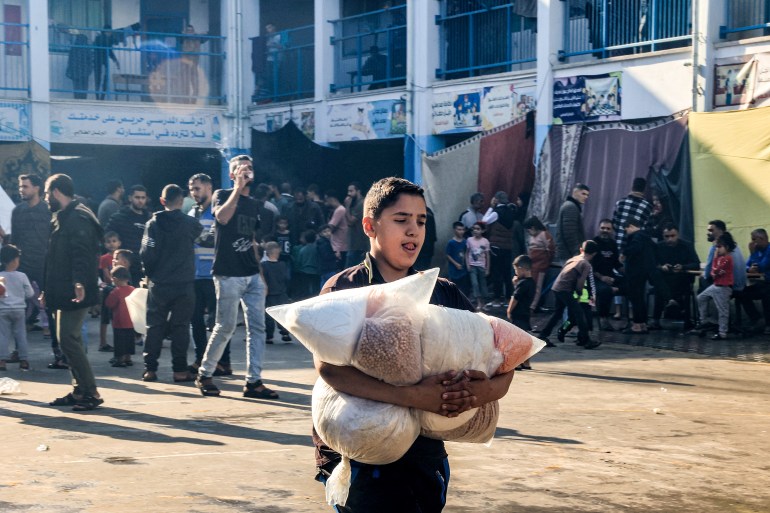
Different ways to die
The hundreds of thousands of Palestinians displaced and sheltering in UN-run schools and hospitals are dependent on UNRWA aid.
“We depend on aid to feed our children,” says Maysara Saad, who was displaced with her nine children from the northern town of Beit Hanoon to a school in Bani Suhaila, east of Khan Younis.
“There is nothing in the shops, and the shelves are empty. We were displaced from our homes in order to protect our children, but we do not want them to die of hunger either.”
The 59-year-old said that the townspeople in Bani Suhaila often come to the schools to see whether there is leftover aid for their families.
“Everything is impossible to obtain and, with winter coming, staying warm has also become one of our responsibilities,” Saad said.
“It is as if the Israelis are telling us that if we do not die from the bombing, they will make us die of thirst, hunger or cold. This is a very cruel war that has no humanity.”

World
How Indian Billionaire Gautam Adani's Alleged Bribery Scheme Took off and Unraveled
World
Brazil’s former President Bolsonaro and aides indicted for alleged 2022 coup attempt
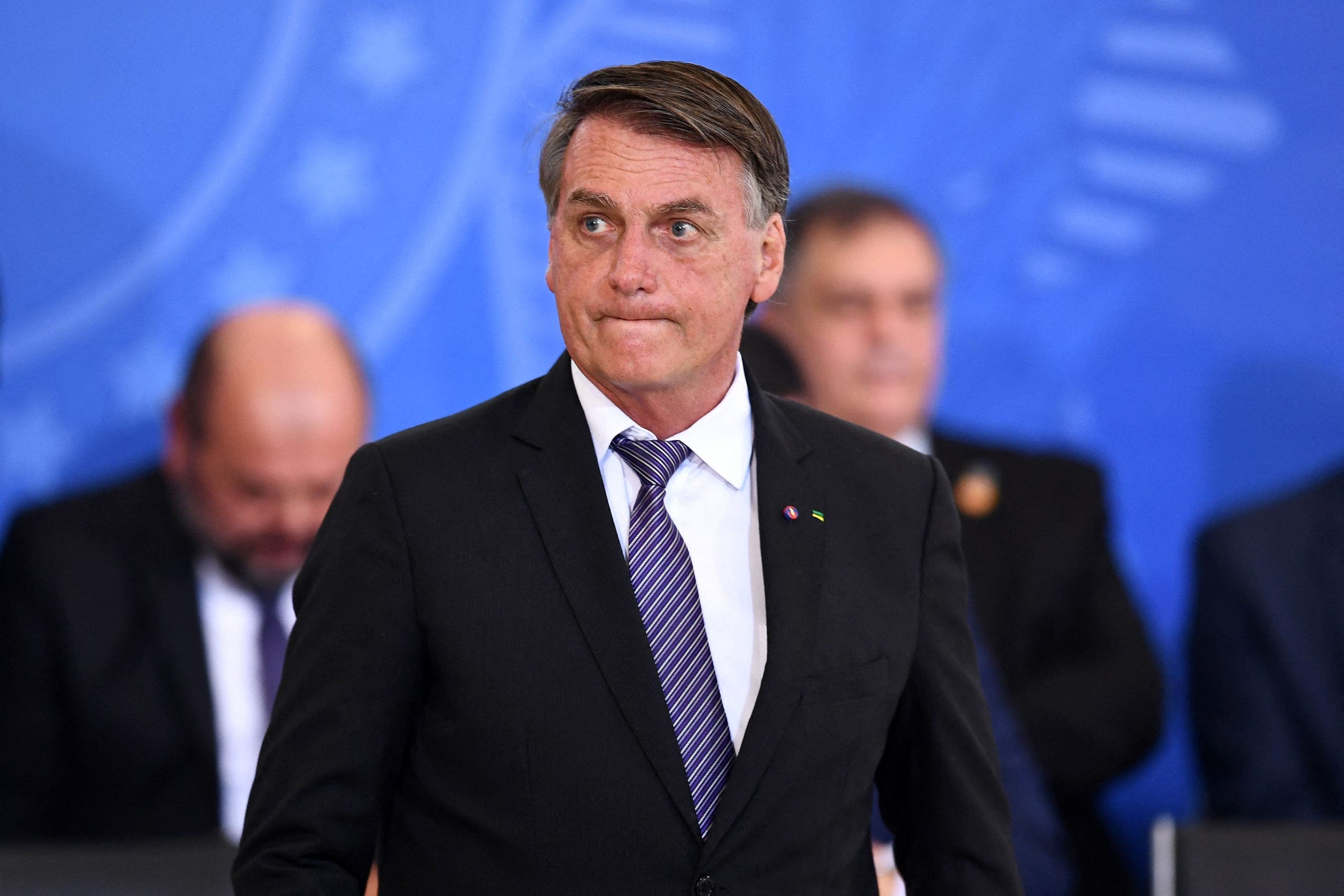
Former Brazilian President Jair Bolsonaro and 36 others were indicted by federal police Thursday on charges of attempting a coup to keep him in office after being defeated in the 2022 elections.
The Associated Press reported that the findings would be delivered to Brazil’s Supreme Court on Thursday, where they will be referred to Prosecutor-General Paulo Gonet to either throw out the investigation or agree with the charges and put Bolsonaro on trial.
Bolsonaro, who leans right politically, has denied claims that he tried to remain in office after his defeat in 2022 to left-wing President Luiz Inácio Lula da Silva.
After losing the election, Bolsonaro launched an aggressive campaign against the Brazilian government that claimed the election was stolen.
BOLSONARO BANNED FROM RUNNING FOR OFFICE FOR 8 YEARS
Brazilian President Jair Bolsonaro and 36 others were indicted by federal police Thursday. (Evaristo Sa/AFP via Getty Images)
One week after Lula took office, Bolsonaro’s supporters raided and trashed the buildings of the South American country’s Supreme Court, Congress and the presidential palace. Hundreds of them are expected to stand trial.
Since his defeat, Bolsonaro has faced a series of legal threats.
In June 2023, electoral judges voted to ban the former leader from public leadership for eight years after determining he attacked the public’s confidence in the country’s democratic institutions. The court also deemed Bolsonaro a threat to political tensions.
FORMER BRAZILIAN PRESIDENT JAIR BOLSONARO INDICTED BY FEDERAL POLICE IN UNDECLARED DIAMONDS CASE: AP
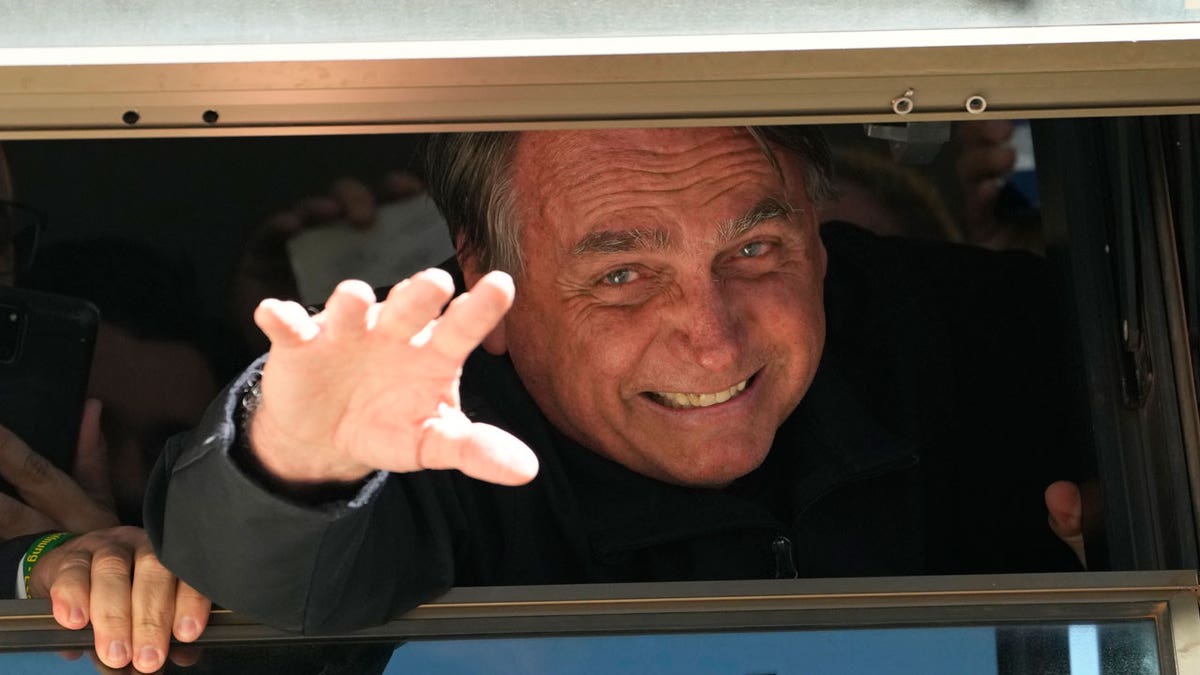
A Brazilian Supreme Court justice has ordered federal police to question ex-President Jair Bolsonaro over his supporters’ attacks on government buildings following socialist successor Luiz Inacio Lula da Silva’s inauguration. (AP Photo/Eraldo Peres)
The decision was made with four out of seven votes by the Superior Electoral Court.
In July, Bolsonaro was indicted by Brazil’s federal police for alleged money laundering and criminal association in connection with diamonds he allegedly received from Saudi Arabia while he was in office.
It was the second formal accusation of criminal wrongdoing against Bolsonaro, having also been charged in March with forging his and others’ COVID-19 vaccine records.
The former president denies any involvement in either allegation.
On Tuesday, Brazilian police arrested four military and a federal police officer accused of plotting a coup that included plans to overthrow the government following the 2022 election, and allegedly kill Lula and other top officials.
Fox News Digital’s Timothy H.J. Nerozzi and Kyle Schmidbauer, along with The Associated Press, contributed to this report.
World
German Defence Minister says he won't run for chancellor in 2025
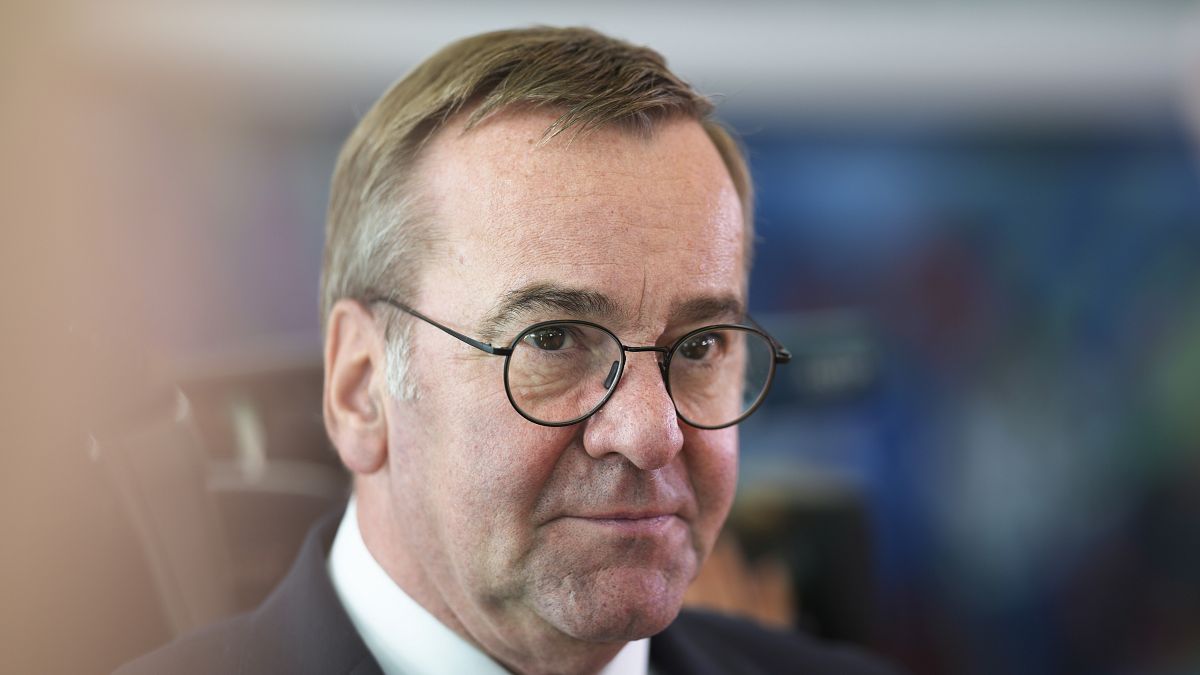
The announcement, which Boris Pistorius made in a video posted to SDP social media channels, clears the way for incumbent chancellor Olaf Scholz to run for a second term.
Germany’s Defence Minister Boris Pistorius has said he is “not available” to run as a candidate for chancellor in February’s snap election, saying he would instead support Olaf Scholz’s re-election bid.
The announcement, which Pistorius made in a video posted to social media channels belonging to the Social Democratic Party (SDP), ends days of speculation about him replacing Scholz.
“I have emphasized this over and over in recent weeks and I’m saying it again as clearly as possible; in Olaf Scholz, we have an excellent chancellor,” Pistorius, currently polling as Germany’s most popular politician, said.
“He led a coalition that would have been challenging in normal times through possibly the biggest crisis of recent decades.”
He added not running was his “sovereign and entirely personal” decision.
Collapse of the coalition
Chancellor Olaf Scholz called a snap election after the collapse of the governing ‘Traffic Light Coalition’ at the start of November.
As per German election rules, the Bundestag will hold a government confidence vote on December 16th before voters head to the polls on February 23.
Germany’s coalition government, made up of the SDP, the FDP and the Greens, collapsed on 7 November after Scholz fired the then Finance Minister and FDP party head, Christian Lindner.
“He (Lindner) has broken my trust too many times”, Scholz told the press at the time, adding that there is “no more basis of trust for further cooperation” as the FDP leader is “more concerned with his own clientele and the survival of his own party.”
The coalition had governed Germany since 2021 and its collapse meant Scholz’s government no longer had a majority in parliament.
The SDP confirmed on Thursday that they would nominate Scholz as their lead candidate for chancellor next week.
But according to current opinion polls, the chances of Germany’s next chancellor belonging to the centre-left Social Democrats is highly unlikely.
Most pollsters put the centre-right Christian Democrats at more than double the level of support of the SDP.
A tally published on Thursday by political research group Infratest dimap shows the CDU/CSU polling at 33% with the SPD trailing behind at 14%, level with the Greens.
-
Business1 week ago
Column: OpenAI just scored a huge victory in a copyright case … or did it?
-

 Health1 week ago
Health1 week agoBird flu leaves teen in critical condition after country's first reported case
-

 Business5 days ago
Business5 days agoColumn: Molly White's message for journalists going freelance — be ready for the pitfalls
-
World1 week ago
Sarah Palin, NY Times Have Explored Settlement, as Judge Sets Defamation Retrial
-

 Politics4 days ago
Politics4 days agoTrump taps FCC member Brendan Carr to lead agency: 'Warrior for Free Speech'
-

 Science2 days ago
Science2 days agoTrump nominates Dr. Oz to head Medicare and Medicaid and help take on 'illness industrial complex'
-
/cdn.vox-cdn.com/uploads/chorus_asset/file/25739950/247386_Elon_Musk_Open_AI_CVirginia.jpg)
/cdn.vox-cdn.com/uploads/chorus_asset/file/25739950/247386_Elon_Musk_Open_AI_CVirginia.jpg) Technology3 days ago
Technology3 days agoInside Elon Musk’s messy breakup with OpenAI
-

 Lifestyle4 days ago
Lifestyle4 days agoSome in the U.S. farm industry are alarmed by Trump's embrace of RFK Jr. and tariffs

















